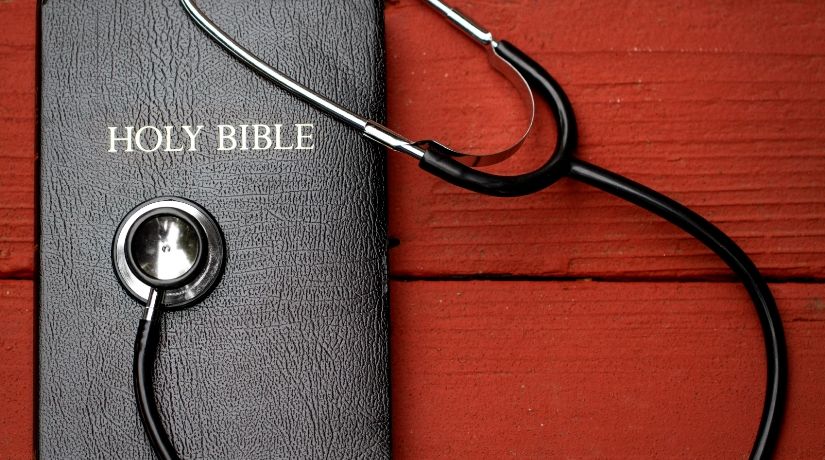
BY OLATUNDE OLAYINKA AYINDE
A few years ago, my team managed a young lady who had bipolar affective disorder, usually shortened to BAD. Briefly, BAD is a mood disorder in which an individual has episodes of sustained mood abnormalities that can include episodes of depression and mania. In a depressive episode the individual has sustained low mood, loses interest in pleasurable activities and lacks energy to perform basic daily activities. He/she could also have poor appetite, weight loss, poor sleep, reduced libido, low self esteem, hopelessness, guilt feelings, suicidal thoughts and actual attempts at self harm. In a manic episode, the client presents with elevated mood, increased level of activity, grandiosity, talkativeness, disinhibition, reckless spending or excessive generosity and reduced need for sleep. BAD is a chronic illness, just like hypertension or diabetes, that has no definitive cure, but if well managed, an individual with BAD can enjoy as normal a life as possible. Prominent persons who had (or have) BAD include former British prime minister, Sir Winston Churchill and Ben Stiller, the actor.
Back to the story, this young lady was a brilliant, pleasant and courteous student of one of the Physical Sciences in a foremost Nigerian university. She had had several episodes that required hospital admission and would often be discharged home to continue taking her medications and to resume her normal activities. Each episode was often precipitated by stopping medications, often because she was in denial. After several episodes and several sessions of counseling, she came to terms with her illness and remained free of symptoms for one of the longest periods since her diagnosis.
It was therefore a rude shock to her managing team when she came in to the clinic one afternoon half naked, talkative and completely disinhibited! After she had been admitted and had got well after several days in hospital, she told us that she met a doctor at one of the fellowships on campus who told her that her illness persisted because she lacked faith; because she could not trust God for a miracle. She was therefore told to “challenge” God by throwing away her medications and “faith it”! My patient, a future scientist, a human being with dignity and pride, walked a distance of several kilometers almost naked because another trained doctor misled her, by giving her medical advice based on faith!
We sat around her, holding back tears of indignation and rage. The first thing I did was get the said doctor’s phone number and call to confirm that he was actually a doctor. Alas, he was. And he actually rotated through psychiatry as a student! I told him on the spot that I would do everything in my power to ensure that he never practiced medicine again in Nigeria.
For those who are still imagining what the big deal is in a young, unprotected woman walking a distance of several kilometers half naked, this much more needs to be said. This lady could have been raped, killed by ritualists or kidnapped. This lady had friends; she had a boyfriend. How would they have felt seeing her in that state? What happens to her self esteem afterwards? Would we be surprised if she took her own life afterwards?
A Nigerian doctor is trained to make diagnosis and treat patients based on a body of scientific knowledge, established by the scientific method and peer review process that is standard in the medical community. Every other thing is a personal opinion that has no place in medical practice. Such a personal opinion must go through the same scientific rigor that every other opinion in history went through to become a medical opinion fit for public consumption.
The danger inherent in being a pastor and a doctor is the fact that the same person holds to be true validated scientific knowledge on the one hand and beliefs held without any empirical testing on the other hand. How the two won’t mix is a task that is left to the imagination. A trained professional is acutely aware of his own personal beliefs and keeps them away from the theatre of his profession. Unfortunately, the last few days has shown that many Nigerian doctors are incapable of doing this. Several doctors have come out openly on social media to state that devils, demons and sin cause illnesses and especially mental illnesses. This is obviously not backed by any evidence, is patently false and totally unethical. It is their personal belief to hold privately as guaranteed by the Nigerian constitution, but it is unethical to allow this to interfere with patient management. How many doctors would sit calmly in a 300-passenger airplane and watch the pilot ignore warnings from the control tower about bad weather not suitable for landing, because he wants to “faith it” and land the plane anyway? How many doctors eat food processed “in faith” without the mandatary hygiene and safety checks? How many doctors ignore their children’s report cards “believing in faith” that their children are doing well in school?
Indeed there is a place for religion and spirituality in medicine, but harmful beliefs and prayers should never replace therapies that have proven efficacy. At best, prayers can be adjuncts to these therapies, as a mark of respect for individual patient’s personal beliefs, as long as they don’t interfere with scientifically established therapies. Hope, love, charity, human warmth and the social support found in many communities of faith are beneficial in nurturing an individual on Orthodox treatment back to health. However, patients must still get the best treatment that modern science has to offer.
The belief in supernatural causation of illness held by many Nigerian doctors can no longer be tolerated in the clinic and on the wards. It is not evidence based, it is wrong, it is unethical. Such beliefs have the potential of leading to dangerous medical advice, they can lead to stigma, discrimination and poor treatment seeking behaviour. The Nigerian doctor must make up his mind if he wants to be a doctor or a pastor. If he insists on being both, then he must ensure his faith is not a source of harm to the patient and the public. If the patient paid for medical opinion, the least the doctor can do is to offer the best available in a totally professional manner. The public must be protected at all times.




Leave a Reply